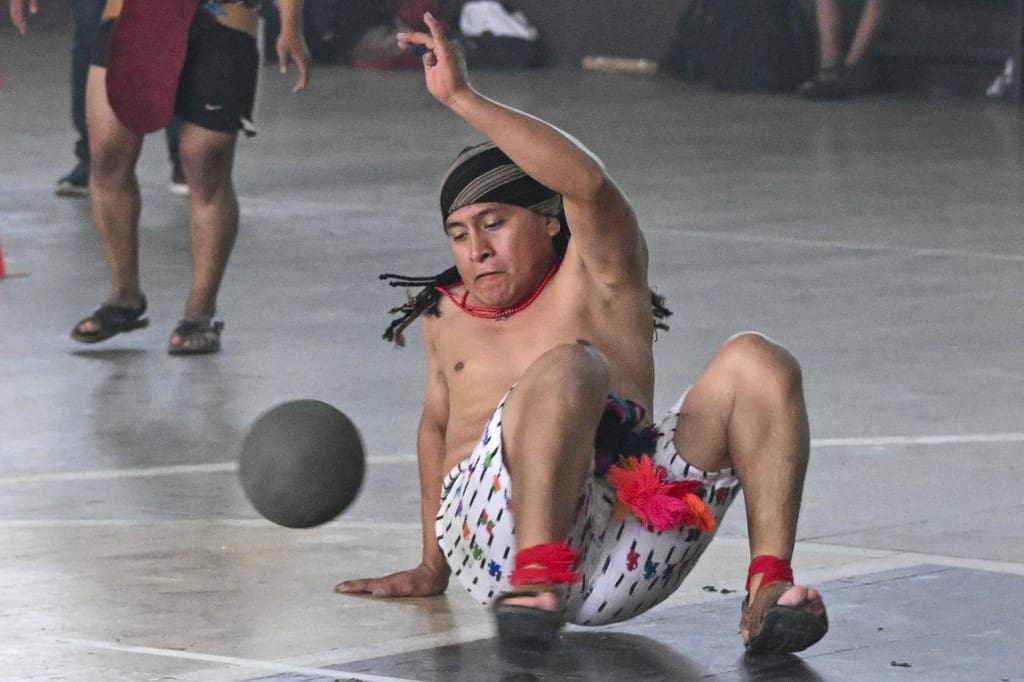Dressed in shorts, a sash, and bare-chested, members of indigenous cultural groups commemorated the March equinox this Saturday with a tournament of the ancestral Mayan ball game in a Guatemalan town.
Eleven teams from the Guatemalan indigenous departments of Chimaltenango, Quiché, Sololá and Quetzaltenango, as well as one from El Salvador, attended this ritual tournament held in the town hall of Tecpán, about 53 km west of Guatemala City.
The competition, enlivened by marimba music, took place in the municipal hall, which is a few kilometers from the archaeological site of Iximché, where the Spanish conquerors founded the first capital of Guatemala in 1524.
In the Mayan worldview, the equinox represents a new cycle for the renewal of energies and is commemorated in Guatemala every March 20 with different ancestral ceremonies and dances, which join the movement of Mother Earth.
The Mayan game “is a way of recognizing their history, their identity and what belongs to us as members of this continent,” said one of the players, Francisca Elías, from the I’xk’at team of San Martín Jilotepeque.
The ancient indigenous people practiced the game to resolve land conflicts or other matters and thus avoid bloodshed. Now, their descendants try to preserve it.
“The Mayan ball game has very important ancestral origins for us in our communities” and is useful “for our culture to continue to claim our roots,” said Flor Bajacol, one of the fans, 34.
Each team is made up of four players who must hit a rubber ball with their hip to make it pass to the opposing side and earn points. If a team manages to cross it through a hoop placed about three meters high, they immediately win the game.
The Mayan culture, one of the most prolific in Mesoamerica, spread through present-day Belize, Guatemala, Honduras and El Salvador, as well as the southern Mexican states of Yucatán, Chiapas, Quintana Roo and Campeche. It had its splendor from 250 to 1200 A.D.
In Guatemala there are 22 ethnic groups of Mayan origin. Of the 17.8 million inhabitants of the country, indigenous people represent 42% of the population, according to official data.






